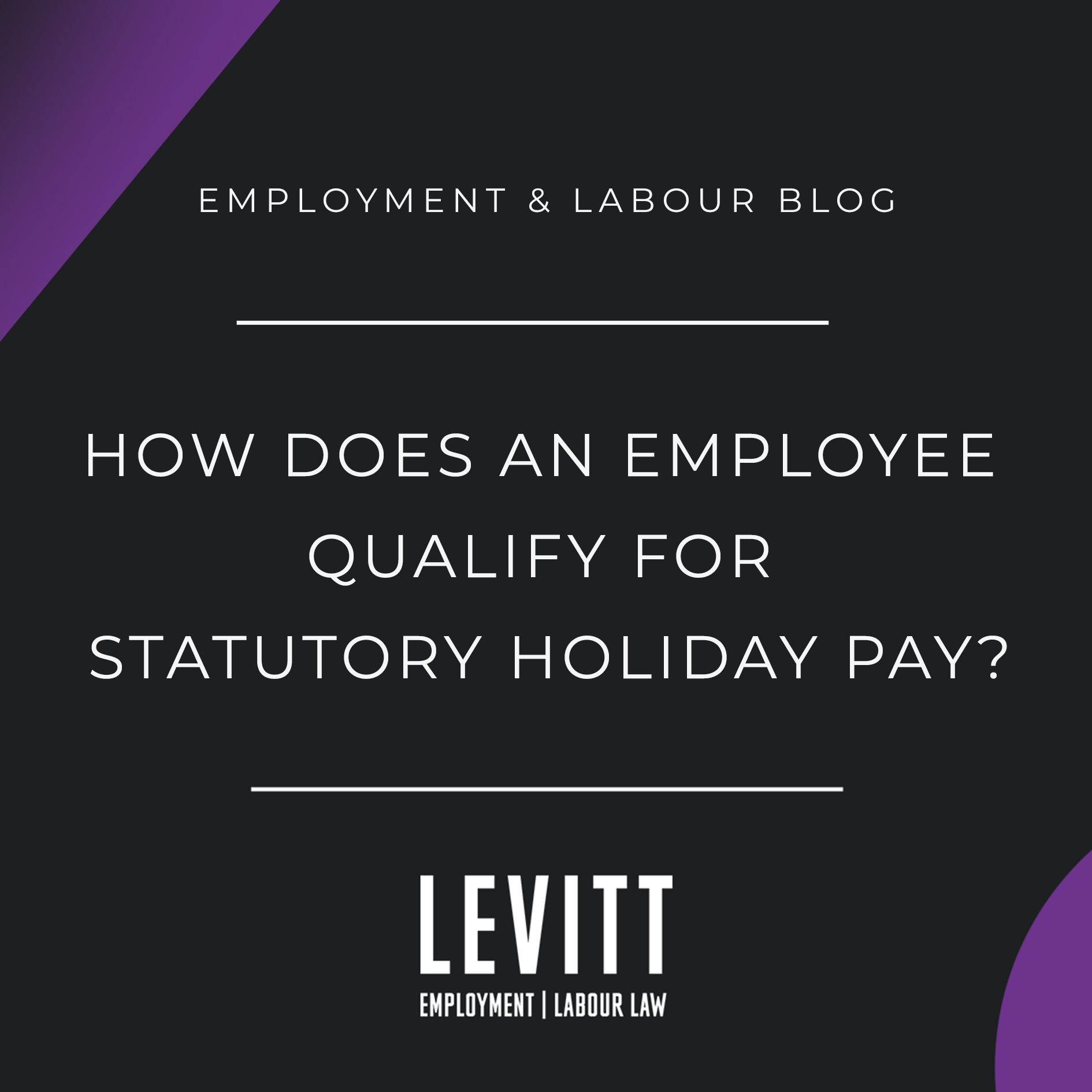What are the Statutory Holidays in Ontario?
Ontario has nine public holidays:
- New Year’s Day
- Family Day
- Good Friday
- Victoria Day
- Canada Day
- Labour Day
- Thanksgiving Day
- Christmas Day
- Boxing Day (December 26)
Most employees who qualify are entitled to take these days off work and be paid public holiday pay.
How do I Know If I Qualify for Statutory Holiday Pay?
While most employees are eligible for the public holiday entitlement, some employees work in jobs that are not covered by the public holiday provisions of the Employment Standards Act (ESA). Special rules and exemptions exist for jobs in these categories:
- EMS, healthcare and health professionals (e.g. paramedics, dental hygienists, hospital employees, opticians, etc.)
- Manufacturing, construction and mining (e.g. construction, maintenance, sewer and watermain construction, mining, etc.)
- Hospitality services and sales (e.g. hotel staff, liquor services, commissioned automobile salespersons, retail business employees, etc.)
- Transportation (e.g. taxi cab drivers, public transit employees, highway transport truck drivers, etc.)
- Agriculture, growing, breeding, keeping and fishing (e.g. farm employees, fishers, tree and shrub growers, horse boarding and breeding, wilderness guides, etc.)
- Household, landscaping and residential building services (e.g. domestic workers, homecare workers, landscape gardeners, janitors, etc.)
- Government employees and professionals (e.g. engineers, architects, lawyers, managers, teachers, etc.)
- Other industries and jobs (e.g. student employees, homeworkers, embalmers and funeral directors, film and television industry, etc.)
If you are unsure if your industry is included in the above exemptions, or you would like to learn more about the specific rules and exemptions for your industry, visit the Ontario Government page on “Industries and jobs with exemptions or special rules” which can be found here: https://www.ontario.ca/document/industries-and-jobs-exemptions-or-special-rules
What if My Job Includes Both Covered and Exempt Work?
Sometimes employees will perform work that is both covered by the public holiday provisions of the Employment Standards Act (ESA), as well as work that is exempt from these provisions. If this is the case, the employee will be eligible for the public holiday if at least half of the work they performed in the work week of the public holiday is work that is covered by the ESA.
The Government of Ontario provides this example:
“Rupert works for a taxi company as both a taxi cab driver (work that is exempt from public holiday coverage) and a dispatcher (work that is covered by the public holiday part of the ESA). In the work week that Canada Day fell, at least half of Rupert’s work was as a dispatcher. Because this work is covered by the public holiday part of the ESA, he is eligible for the public holiday entitlement for Canada Day.”
Statutory Holiday Pay if Not Working
The amount of public holiday pay an employee is entitled to is all of the regular wages earned in the four work weeks before the week of the public holiday plus all of the vacation pay payable to the employee with respect to the four work weeks before the public holiday, divided by 20.
Regular wages do not include any overtime or premium pay payable to an employee.
Statutory Holiday Pay if Working
Alternatively, the employee can work on the holiday and be paid:
- public holiday pay plus “premium pay” for all hours worked on the public holiday and not receive another day off (called a “substitute” holiday);
OR - be paid their regular wages for all hours worked on the public holiday and receive another substitute day off for which they must be paid public holiday pay.
Please note that this article is only to be used as general information and it does not constitute legal advice. We encourage employers and employees to contact Levitt LLP directly to better understand vaccination-related issues and seek legal advice to their questions.

